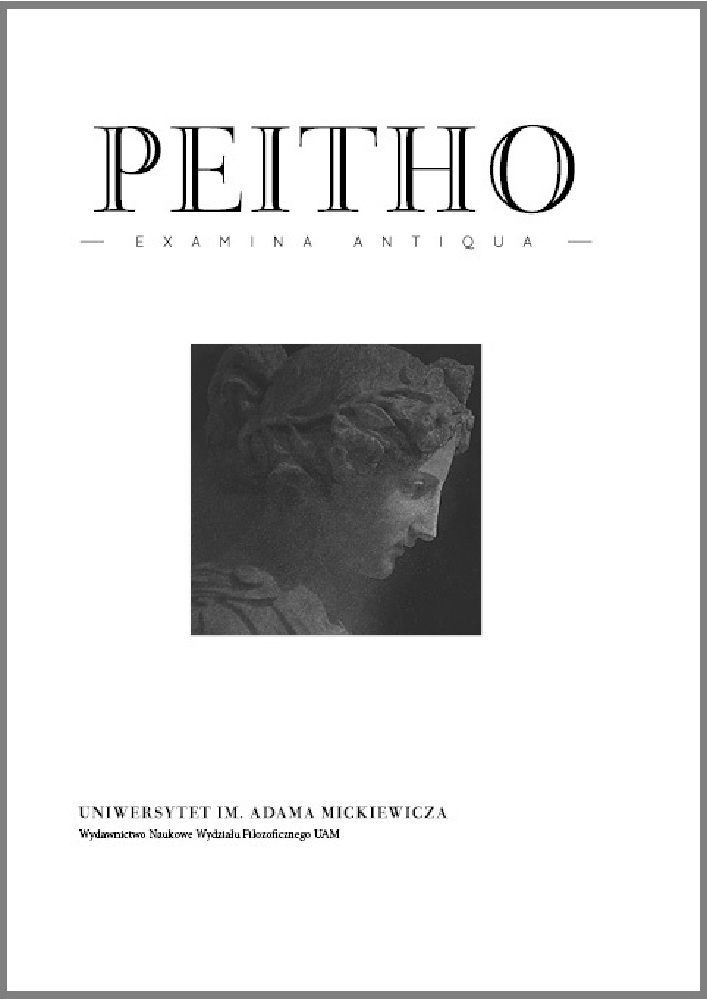Abstract
We have unfortunately very little information on the three accusers of
Socrates: Meletus, Anytus, and Lycon. Notwithstanding this, the present
paper attempts to discuss the circumstances and motives that led to
Socrates’ trial. Furthermore, the article deals with Socrates’ crucial stand
after the verdict and considers the philosopher’s arguments as these have
been presented in the first tetralogy.
References
Μπέης, Κ., 2001, Ωρα απιέναι. Η δίκη του Σωκράτη, Αθήνα.
Beys, K., 2001, The trial of Socrates, Athens 2001.
Μπέης, Κ., 2010, Θρησκεία, επιστήμη, φιλοσοφία, Εκδόσεις Πόλις.
Decharme, P., 1904, La Critique des traditions religieuses chez les Grecs, des origines au temps de Plutarque, Paris.
Dodds, E. R., 2002, Grecy i irracjonalność, tłum. Jacek Partyka, Bydgoszcz.
Guthrie, W. K. C., 1991, Sokrates, Warszawa.
Hegel, G. W. F., 1994, Wykłady z historii filozofii, t. I, tłum. S. F. Nowicki, A. Węgrzecki, Warszawa.
Κελεσίδου, A.,1982, Η έννοια της σωτηρίας στην πλατωνική πολιτική φιλοσοφία, Αθήναι.
Κελεσίδου, Α., 1996, Η φιλοσοφία του Ξενοφάνη, Αθήναι.
Παπαδάκης, Ρ.-Ε., 2009, Η αναθεώρηση της δίκης του Σωκράτη, Ευδικία 9, s. 147–151
Παπανικολάου, Π., 1992, Σωκράτης και Ισοκράτης (Πλάτωνος απολογία Σωκράτους και Ισοκράτους περί αντιδόσεως), w: Η φιλοσοφία του Σωκράτη, Κ. Βουδούρη, Αθήνα.
Wesoły, M., 2010, Ο πλατωνικός διάλογος ‘Γοργίας’: Δραματικό requiem της δικαίωσης του Σωκράτη στη ζωή και τον θάνατο, Φιλοσοφία και Παιδεία 160, 54, ss. 24–25.
License
Peitho provides immediate open access to its content on the principle that making research freely available to the public supports a greater global exchange of knowledge.
